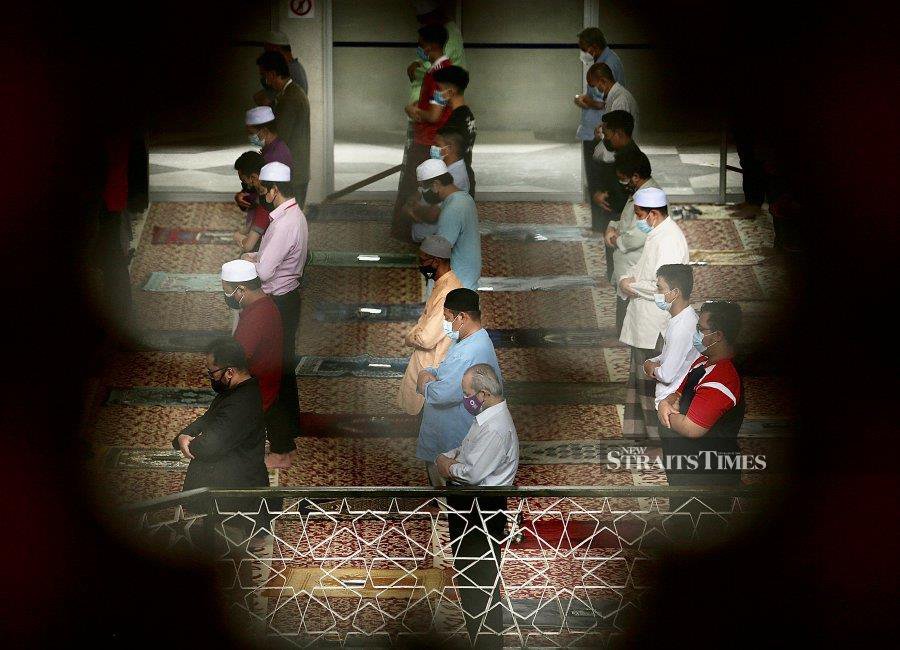One of my beneficial readings during this pandemic is a book, The Longevity Project, co-authored by Professor Dr Howard Friedman and Professor Dr Leslie Martin.
It is a summary of research, based on interviews as well as health data of 1,528 participants in the United States in the span of 80 years (since 1921), from the participants' youth until death.
Its long subtitle thus: "Surprising discoveries for health and long life" from the landmark study.
Indeed, the book presents many revolutionary findings on diet and nutrition, fitness and longevity; and chapter 11 is devoted to relations between healthful longevity with religious faith, under the title "Long life meets the afterlife".
I was led to the book by an article by Markham Heid, "What people who live long — and through pandemics, war and more — have in common".
Heid interviewed researchers specialised in healthy ageing, including Professor Dr Peter Martin of Iowa State University.
In the words of Prof Martin, an underappreciated element which is very contributive towards health and longevity is "geotranscendence", referring to any worldview based on spirituality vis-à-vis sheer rational ideologies or materialistic mindsets.
Martin's research found many long-lived individuals inclined to spiritual attitudes. They are more contented of life, with faith in a higher being.
This attitude is helpful in handling a life full with unexpected adversities and disconcerting disruptions. From here springs patience and perseverance, which are elements in the recipe for healthful and satisfying life.
There is a prophetic tradition of a man asking, "O Messenger of God! Who is the best of the people?" The Messenger answered: "He whose life is long and his deeds are good."
The man asked again: "Then which of the people is the worst?" The Messenger answered the same: "He whose life is long and his deeds are bad."
Al-Ghazali's celebrated work Ihya' 'Ulumiddin narrated it with a variation: "The most excellent happiness is a long life in obedience to God."
A simple survey of the lives of the Companions of the Prophet, early devout Muslims, scholars and Sufis found that a majority were bestowed with long life.
The Prophet used to pray that Allah graces the life of his assistant, Anas ibn Malik, who lived up to 100 years.
Indeed, 100 years of age were also endowed to luminaries like Abdullah bin Buraydah and Abu Ya'la al-Mawsuli; while 90 years or more were obtained by eminent personalities like al-Nabulsi, Abu Nu'aym, Hakim Tirmidhi, Harb Kirmani and Hasan al-Basri.
Researchers are amazed as their times were yet to boast of modern medical treatments of antibiotic, surgery, anaesthesia, vitamins, or empirical sciences of microbes and pathogens.
Relevant to "geotranscendence", in the worldview of Islam, faith in Allah coupled with sincere prayer, supplication, divine remembrance, worships and God-consciousness (taqwa) are some pathways towards profound happiness and wellbeing.
A tranquil spiritual heart conduces towards healthful life, while a corrupt heart impacts body, mind, soul, and even society and biosphere.
The Quran reminds that "no kind of calamity can occur, except by the leave of God: and if anyone believes in God, He guides his heart aright (to move on): for God knows all things…. God! There is no god but He: and on God, therefore, let the Believers put their trust" (al-Taghabun [64]: 11, 13).
The verse punctuates that a calamitous situation ought to be perceived with a religious conviction in one God — the above-mentioned vague "geotranscendence".
A calamity comes as a test from Him, to assess one's ethical and spiritual perseverance; thus, a servant must return to Him so that He would put an end to his suffering.
Hence, God commanded the Prophet to "give tidings of happiness to those who remain steadfast in adversity, who, when afflicted with calamity, say, 'to God we belong, and to Him is our return'" (al-Baqarah [2]: 155–156).
Calamity heightens their consciousness that they belong to God.
Hardship becomes a source of motivation towards beneficial actions to themselves, to people they care about, to society at large, and to their environment.
For those who decline spiritual discernment, the calamity afflicts agony on their hearts. Difficult challenges cause them to get angry, prone to worry and anxiety.
Feeling frustrated and resentful about life, they are deprived of this beauty: a moral virtue of patience and perseverance when confronted by difficult times.
The writer is principal fellow/director, Centre for Economics and Social Studies, Institute of Islamic Understanding Malaysia (IKIM)
The views expressed in this article are the author's own and do not necessarily reflect those of the New Straits Times





